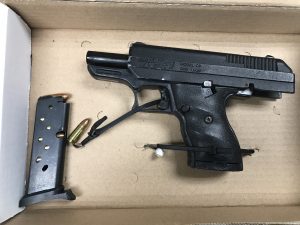 The United States Supreme Court recently decided to uphold a federal statute that criminalizes gun possession for those subject to civil domestic violence court orders. In the 8-1 decision, the Court appeared to offer a looser interpretation of the gun rights afforded by the Second Amendment than the previous landmark ruling in New York Rifle and Pistol Association v. Bruen. The opinion in Bruen cited our Nation’s historical tradition of firearm regulation in striking down a New York law that previously required citizens to prove a need to obtain a concealed carry permit. In this recent opinion the Supreme Court said the appeals court incorrectly set our searching for a historical twin to the modern law prohibiting respondents in civil domestic violence orders from otherwise lawfully possessing firearms. Rather, the high court admonished the lower court for not for not looking for a historical equivalent that was readily available. Centuries old “going armed” laws banned gun possession for those thought to present a danger to others. Modern civil protective orders are granted in cases where a judge determines the respondent presents a danger to the petitioner, and thus the historical analogue mentioned in Bruen is satisfied.
The United States Supreme Court recently decided to uphold a federal statute that criminalizes gun possession for those subject to civil domestic violence court orders. In the 8-1 decision, the Court appeared to offer a looser interpretation of the gun rights afforded by the Second Amendment than the previous landmark ruling in New York Rifle and Pistol Association v. Bruen. The opinion in Bruen cited our Nation’s historical tradition of firearm regulation in striking down a New York law that previously required citizens to prove a need to obtain a concealed carry permit. In this recent opinion the Supreme Court said the appeals court incorrectly set our searching for a historical twin to the modern law prohibiting respondents in civil domestic violence orders from otherwise lawfully possessing firearms. Rather, the high court admonished the lower court for not for not looking for a historical equivalent that was readily available. Centuries old “going armed” laws banned gun possession for those thought to present a danger to others. Modern civil protective orders are granted in cases where a judge determines the respondent presents a danger to the petitioner, and thus the historical analogue mentioned in Bruen is satisfied.
The law at issue was 18 United States Code section 922, which is one of the most commonly prosecuted gun crimes in federal court. It allows federal prosecutors to charge convicted criminals, fugitives, those dishonorably discharged from the military, juveniles, drug users and the mentally ill with a crime for knowingly possessing a firearm. Subsection (g)(8) deals specifically with those who after being afforded a hearing have been ordered by a judge to refrain from harming or placing in fear a former spouse or intimate partner. Violation of this subsection is a serious felony offense that carries up to 15 years in prison, so even first-time offenders could potentially face a significant prison sentence without ever having been convicted of a crime in the past. We do not see a ton of cases being prosecuted under these circumstances due to the fact that many states have their own laws regarding gun possession by respondents in civil domestic cases. Maryland for example has strict laws regarding firearm possession by respondents in protective order cases. Anyone who is currently under a domestic violence protective order is prohibited from possessing a gun under Public Safety code section 5-133. A violation of this statute could lead to up to five years in prison and additional charges for violation of a protective order under family law section 4-509. Even those who are under a temporary protective order may be prohibited from possessing a firearm if the judge determines a firearm was used or there was a threat of serious bodily harm.
The fact that the law was upheld by the Supreme Court means the protective order subsections of the Maryland Family Law Article will not have to undergo major changes. Striking down the law would have required the legislature to change the language in a host of statues, but now it will be business as usual. Respondents in protective orders will almost always be forced to surrender their firearms after a temporary order is signed by a judge, and in all cases when a final order is effectuated. If you have a question about a protective order, contact Maryland domestic violence lawyer Benjamin Herbst anytime for a free consultation. Benjamin specializes in domestic assault, protective order violations, peace orders, destruction of property, telephone misuse, harassment and all other state and federal crimes. Benjamin is also highly experienced in defending state and federal gun charges such as possession by a convicted felon or other disqualified individual, possession of a firearm at a federal facility and minor in possession of a firearm. He is available 7 days a week to discuss your case and is standing by to take on bail reviews and motions to recall bench warrants or arrest warrants on short notice. Call Benjamin at 410-207-2598 to discuss your case today.
 Criminal Defense Lawyer Blog
Criminal Defense Lawyer Blog

